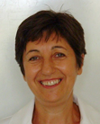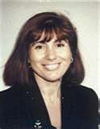 |
D-Lib Magazine
November/December 2011
Volume 17, Number 11/12
Table of Contents
Report on the Workshop "Linking Research and Education in Digital Libraries"
|
Vittore Casarosa
ISTI-CNR, Pisa, Italy
vittore.casarosa@isti.cnr.it
|
Donatella Castelli
ISTI-CNR, Pisa, Italy
donatella.castelli@isti.cnr.it
|
Anna Maria Tammaro
University of Parma, Italy
annamaria.tammaro@unipr.it |
doi:10.1045/november2011-casarosa
Printer-friendly Version
Abstract
The goal of the workshop "Linking Research and Education in Digital Libraries", held 27-28 September 2011 in Berlin, was to further a discussion begun at an earlier workshop in Parma in November 2010, on how to better exploit the results of research for education in Digital Libraries, or more generally, education for information workers. The theme was a review of the roles of information professionals, considering not only the impact brought by the advances in the technical dimension, but also other dimensions such as policy, quality, user profiles, and legal aspects.
Introduction
Professionals working in the so-called "memory institutions" (libraries, archives and museums) are increasingly facing the need to reconsider their educational needs in order to maintain the traditional leadership in the cycle of knowledge creation, distribution and preservation. The increased availability of digital information made possible by the Web is blurring the boundaries between those institutions and is transforming the respective professionals in a more general role of "information workers".
The workshop "Linking Research and Education in Digital Libraries" was held in Berlin, 27-28 September 2011 in connection with TPDL 2011 (Theory and Practice of Digital Libraries, Berlin, 26-28 September 2011), and was jointly organized by the European project DL.org and the International Master DILL — Digital Libraries Learning, of the Erasmus Mundus program. The workshop aimed at bringing forward a discussion already started at a previous workshop held in Parma in November 2010 on how to better exploit the results of research for education in Digital Libraries, or more generally, education for information workers. The main thread of discussion was a critical review of the roles of the information professionals, considering not only the impact brought by the advances in the technical dimension, but considering also other dimensions such as policy, quality, user profiles, legal aspects, etc. The workshop was attended by about 40 participants, many of them being students of the first or second year of the DILL International Master.
Lectures & Presentations
The workshop was opened by a thought-provoking lecture by Sue Myburgh about the need for a theoretical foundation in order to transform the "librarian profession" into a "librarianship discipline". The workshop began with a presentation by Seamus Ross of a "conformance checklist" to assess the conformance of a digital library with the conceptual model proposed by DL.org, showing how the checklist could provide the basis for defining a set of topics needed in digital library education. On the same line, a subsequent presentation by Graham Walton provided some considerations about the skills needed by a professional in order to evaluate a digital library, focusing more on the organizational and interpersonal skills rather than the technical ones.
Two interesting lectures were presented by two US speakers through real time video streaming. In the first lecture Ed Fox presented briefly the 5S model for digital libraries, and two projects (LIKES — Living in a KnowlEdge Society and CTR — Crisis, Tragedy and Recovering) showing the need for increased education in the development and usage of digital libraries; it concluded by briefly presenting a proposal for a textbook on digital libraries. The second talk, delivered by Gary Marchionini, presented several examples to advocate the early involvement of students into research projects requiring skills both in Library and Information Science and in Computer Science.
The workshop continued with a presentation by Donatella Castelli about the contribution of the DL.org project to three major research topics in digital libraries, namely digital libraries for scientific data and research objects, content sharing in digital libraries, digital libraries infrastructures and Virtual Digital Libraries. It was shown how these topics are bringing in new challenges for the education of digital librarians. Yannis Ioannidis presented in a clear and concise way the main concepts of the DL Reference Model, initially developed by the DELOS Network of Excellence and brought forward by DL.org, showing how the model could be the starting point for a theoretical foundation of a discipline on digital libraries. Anna Maria Tammaro (chair of the IFLA section Support of the Profession) presented briefly the involvement of IFLA in the Education and Training of librarians, and offered the support of IFLA for continuing a discussion on those topics. Finally, Getaneh Alemu (a former DILL student) presented "the view from the other side", i.e. his experience about receiving education in digital libraries (and practicing it) over a period of about 10 years and suggested a number of specific topics that in his experience should be included in a digital library curriculum.
The series of presentations was closed by another thought-provoking presentation by Stefan Gradman, advocating that at the university level, research and teaching have to complement each other (as it should be, in order to make the difference between high schools and universities) and that a change in terminology, when going from the library world to the world of the Web and Linked Open Data (e.g. from "catalog" to "graph", from "document" to "aggregation"), would actually imply a complete re-thinking of the meaning of all those terms, and therefore also a re-thinking of their educational aspects.
The workshop was closed by a panel of experts (Vittore Casarosa, Ron Larsen, Steve Griffin, Michael Seadle, Rasmus Thogersen) who provided additional views and experiences in education in digital libraries. At the conclusion of the panel (and the workshop) there was a general agreement that information professionals, given the increased use of Web technologies for knowledge dissemination and for collaboration, definitely need an increased education in the usage (and development) of interactive tools and services to facilitate their activities as information professionals. It was unclear (and it was left open) how and where to draw the line between increased education in Computer Science and increased education in the usage of advanced applications and tools available for memory institutions. Finally, it was proposed to establish an open forum under the sponsorship of IFLA to continue the discussion and the exchange of ideas started by the previous workshop in Parma and continued by this one.
About the Authors
 |
Vittore Casarosa graduated in Electrical Engineering at the University of Pisa. After a few years spent as a researcher at CNR (the Italian National Research Council), he spent many years in the R&D laboratories of IBM in Italy, France and in the U.S., conducting and managing research mostly in image processing and networking. Since 1996 he has been a Research Associate of CNR, at the Institute for Information Science and Technology in Pisa (ISTI-CNR), involved in the activities of the Multimedia Laboratory in the field of Digital Libraries. From 2000 to 2008 he was Deputy Director of DELOS, the Network of Excellence on Digital Libraries. Since 2008 he has collaborated with HATII at the University of Glasgow for training activities on the preservation of digital objects. Since 2007 he has taught courses on Digital Libraries at the Open University of Bolzano, at the University of Parma and at the University of Pisa.
|
 |
Donatella Castelli is a Senior Researcher working at the "Istituto di Scienza e Tecnologie della Informazione" of the Italian National Research Council (CNR-ISTI). She has been the principal investigator of several European and National funded projects on digital libraries and data e-Infrastructure, acquiring considerable experience in these domains. In particular, she has acted as scientific coordinator of the DL.org project. She is currently the scientific director of the EU co-funded iMarine project which aims at deploying a data e-Infrastructure ecosystem for marine biology and fisheries management. She is also the technical coordinator of the OpenAIRE project which is developing and operating the Open Access pilot infrastructure for making available research publications produced in the context of EU funded projects. Her scientific interests are centered around digital libraries, data infrastructures and data interoperability areas.
|
 |
Anna Maria Tammaro has been teaching at the University of Parma, as Italian Coordinator of the International Master in Library and Information Studies and DILL Digital Library Learning, since 2001. She is Chair of IFLA Education and Training Section and a member of the EUCLID Board. She has been involved in many national projects on digital libraries and has collaborated with the European projects Minerva Ministerial Network for digitisation in Europe, and the Tempus Project NMPLIS. Her main interests in teaching and research are: Internationalisation and quality assurance of higher education; Digital libraries; Electronic publishing; Learning and libraries.
|
|